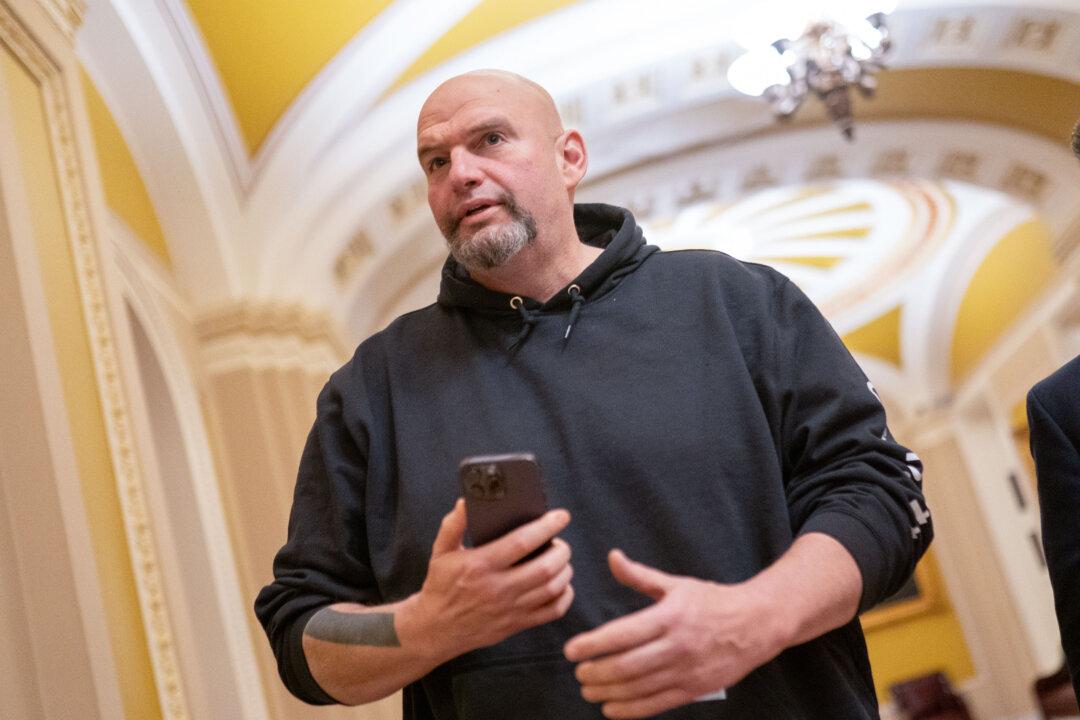Sen. John Fetterman (D-Pa.) said that Kash Patel, President-elect Donald Trump’s nominee to lead the FBI, pledged during an off-record meeting that he wouldn’t pursue prosecutions against the incoming president’s political opponents.
“He absolutely [said] that’s never going to happen,” Fetterman said during a Dec. 22 appearance on ABC’s “This Week.”





